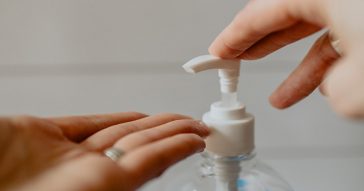Revolutionary Cream from Chemistry Institute Offers Moisture and Germ Protection
During the COVID-19 pandemic, the entire world has become accustomed to the strong smell and feeling of dry hands after washing them several times with alcohol gel, a substance that is effective against the SARS-CoV-2 virus. However, the USP Chemistry Institute (IQ), in partnership with the company Golden, has developed a smart solution for dry hands: Phitta Cream, an antimicrobial moisturizer. Koiti Araki, a professor at IQ who is responsible for the patent, explains in more detail how the cream works and how the project was developed.
As Araki explains, Phittalox, the active ingredient in both Phitta Cream and the disposable mask produced by the same company, works when it comes into contact with air: “When the oxygen in the air interacts with this molecule, it is activated and acts as if it were hydrogen peroxide, destroying microorganisms. It also helps to destroy molecules that cause bad odors and can be used to make other types of deodorants.”
In addition to being able to be applied together with a moisturizer and not drying out the hands, Phittalox has another advantage over conventional alcohol gel: the protection against germs lasts much longer. “Alcohol works momentarily. It is effective in eliminating microorganisms present on a contaminated hand, but one minute after the alcohol evaporates we are already subject to recontamination. The antiseptic cream that contains Phitax technology, developed here in our group, guarantees protection for up to four hours,” explains Araki.
Against superbugs
The cream was tested against several different microbes, mainly viruses and bacteria. Practically all viruses subjected to the substance, including the influenza virus, several strains of SARS-CoV and the Mpox virus, responsible for monkeypox.
The professor also explains that Phitta Cream can be an ally against the proliferation of superbugs, a growing concern among doctors and infectious disease specialists around the world: “The mechanism of action of antibiotics is based on blocking active sites, which prevents bacteria from proliferating or reproducing. Note that our cream does not depend on the active site, which is why it becomes an antimicrobial that prevents the development of resistance responsible for the emergence of superbugs. It is a general antiseptic,” explains Araki.

